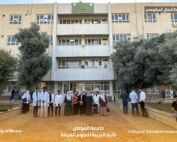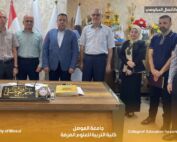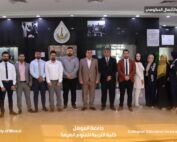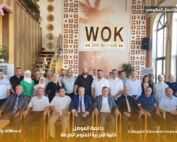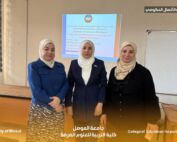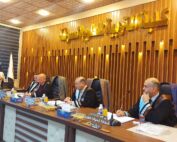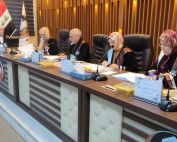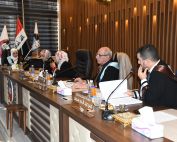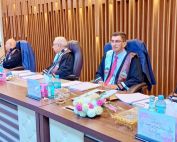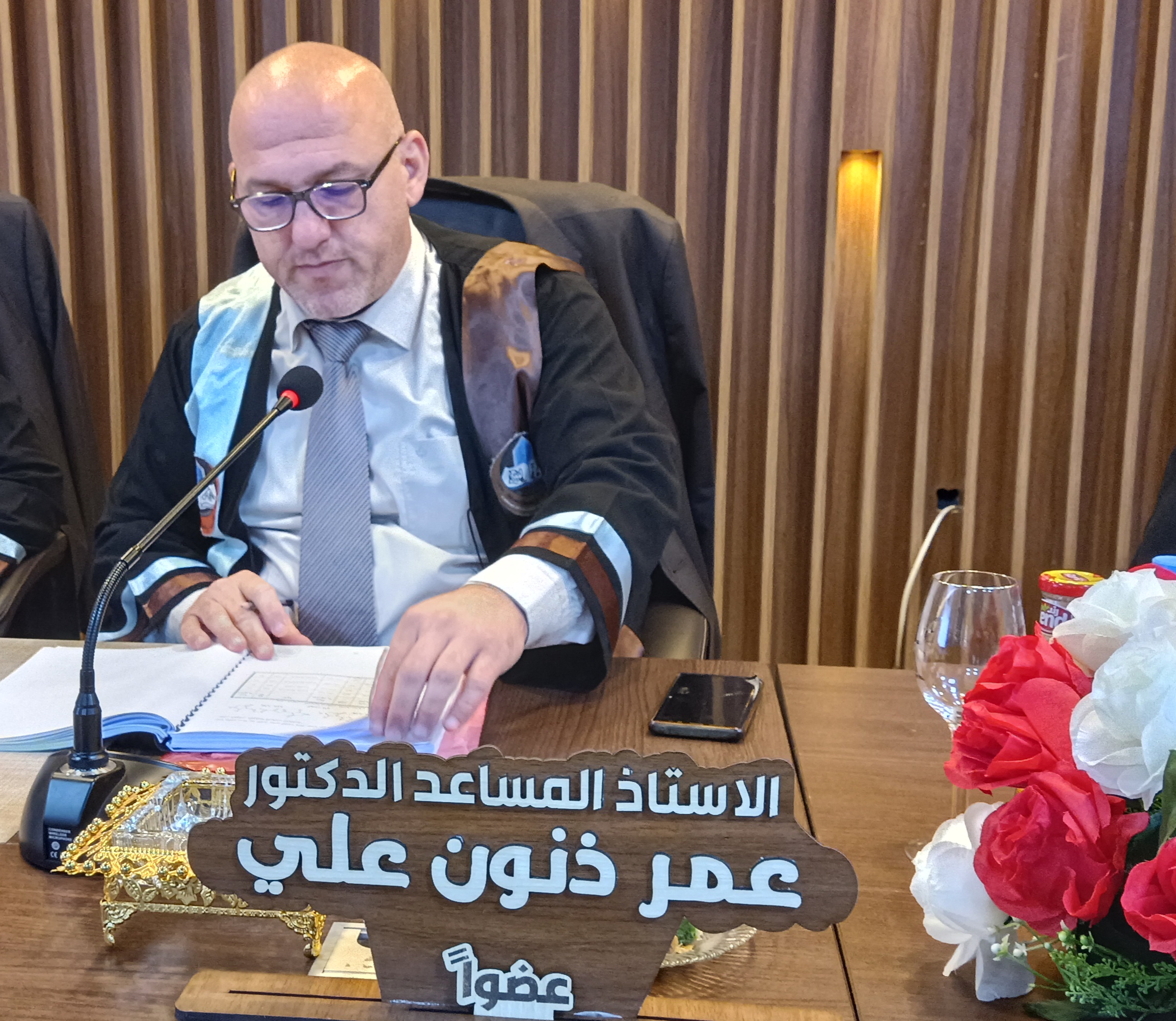1 April، 2022
PH.D. DISSERTATION DISCUSSION-BIOLOGY DEPARTMENT
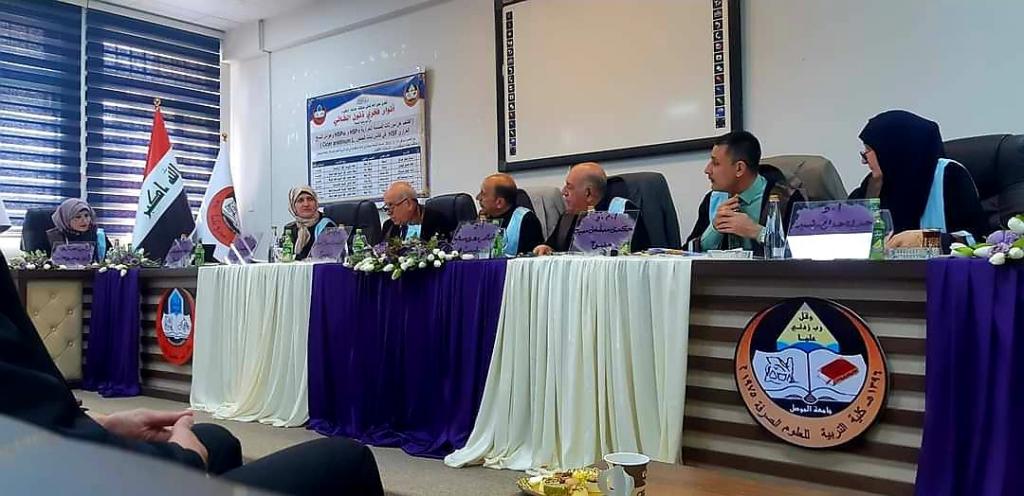
Discussion of a PH.D. Dissertation in the College of Education for Pure Sciences- Department of Biology entitled ” Detection of heat shock genes HSP70 and HSP90 and heat transcription factors HSF of callus chickpea plant, Cicer arietinum L ” on Thursday, 31-3-2022, The College of Education for Pure Sciences at the University of Mosul discussed the PH.D. Dissertation of the student Anwar Fakhri Dhanun Hammoudi and under the supervision of ProF Dr. Jamella Hazaa Rasheed.The present study detected the gene expression of heat shock proteins HSP70, HSP90 genes and heat transcription factors HSFs in callus cultures of Cicer arietinum L. exposed to abiotic shocks. Murashige and Skoog (MS) medium was provided by 1.0 mg L-1 naphthalene acetic acid (NAA) and 2.0 mg L-1 benzyl adenine (BA) in support of building up heat shock proteins HSPs which participate in producing chickpea plants tolerant to heat, cold and Ultrasound shocks, and its reflections on protein content, fresh weight, specific activity of hydrogen peroxide and oxidized fats.The results of the current study pointed out that the supporting role of short-term (5,10 minutes) and long-term (15,20 minutes) heat shock increases each of fresh weight of callus and its protein content.The current study found that the best medium for the establishment of cell suspension cultures is based on mannitol as a carbon source, instead of sucrose. This is in the liquid MS medium supplemented with the addition of 1.0 mg L-1 NAA and 2.0 mg L-1 BA. Data exhibit the ability of cells to start their first division and subsequent divisions. Density of cell suspension cultures, derived from embryogenic and hypocotyl stem calli were 45×104 cells /ml and 34×104 cells/ml respectively. Cultures of the above mentioned densities in agar drops. By promoting the formation of numerous colonies, most of these colonies were developed into callus primordia subsequently they produce callus cultures. In the other hand, cell cultures were exposed to many physical shocks.Obviously, these results enhanced the tolerance of chickpea callus to abiotic stresses (high and low temperatures and ultrasonic sound waves). Additionally, induced the heat shock factors HSF genes to produce readily heat shock proteins HSP70 and HSP90 to remove the damaged proteins and avoid apoptosis, The discussion committee was chaired by Prof. Dr. Shakir Mahdi Salih from Tikrit University/College of Agriculture, and the membership of both Prof. Dr. Muhammad Saeed Faisal, Head of the Department of Biology, Assistant Professor Dr. Shefaa Mahdi Salih, Assistant Professor Dr. Raed Salem Ahmed from the College of Science and Prof. Assistant Dr. Hikmat Mustafa Musayyib from Koya University /College of Science and Health and under the supervision and membership of Prof. Dr. Jamila Hazaa Rashid.

